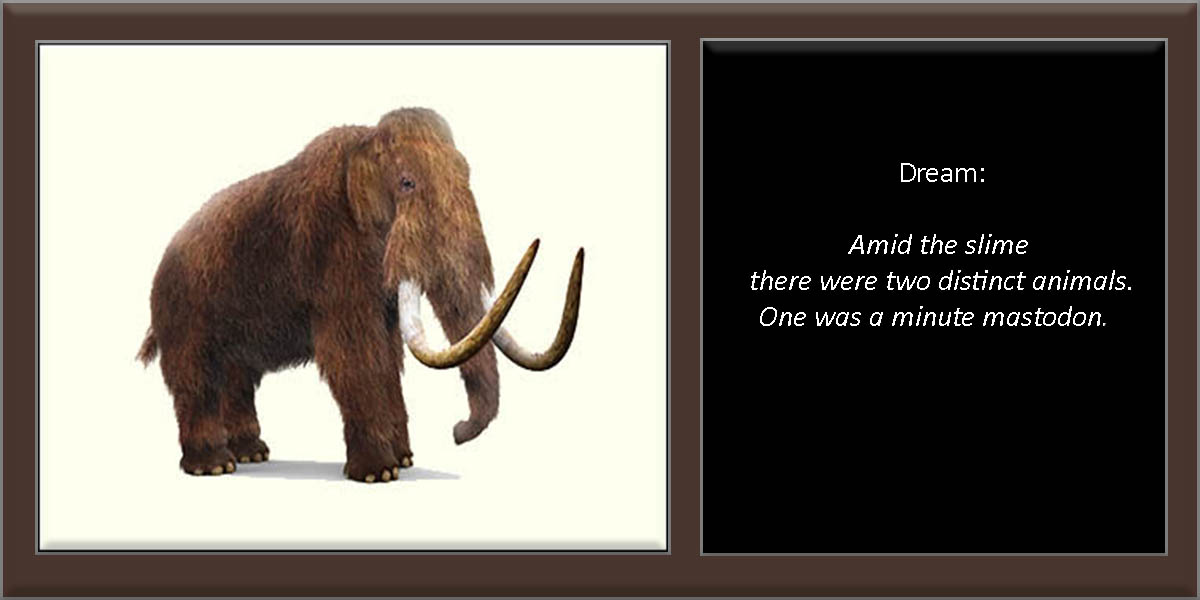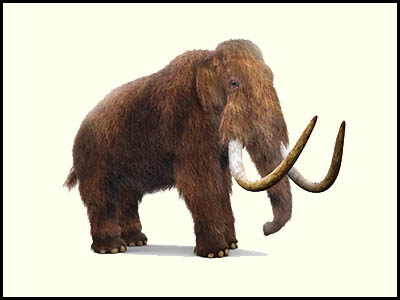
From the Tavistock Lectures, with C.G. Jung:
Someone beside me kept on asking me something about oiling some machinery.
Milk was suggested as the best lubricant.
Apparently I thought that oozy slime was preferable.
Then a pond was drained, and amid the slime there were two distinct animals.
One was a minute mastodon. I forgot what the other one was.
The doctor who heard this dream from a patient sent the dream to Carl Jung:
I thought it would be of interest to submit this dream to Jung to ask him what his interpretation would be. He had no hesitation in saying that it indicated some organic disturbance, and that the illness was not primarily a psychological one… The draining of the pond he interpreted as the damming-up of the cerrebrospinal fluid circulation.
When Jung was asked about this at his Tavistock Lectures in London in 1935, Jung commented:
The doctors of antiquity and of the Middle ages used dreams for their diagnosis…. It is really a matter of special experience…. The dream you mentioned was a dream of a little mastodon. To explain what that mastodon really means in an organic respect and why I must take that dream as an organic symptom would start such an argument that you would start an argument that you would accuse me of the most terrible obscurantism. These things really are obscure. When I speak of archetypal patterns those who are aware of these things understand, but if you are not aware you think, This fellow is absolutely crazy because he talks of mastodons and their difference from snakes and horses. I should have to give you a course of about four semesters about symobology first so that you could appreciate what I said.
(Analytical Psychology in Theory and Practice, page 74.)
When I first came across this dream and interpretation many years ago, I found it absolutely astounding that Jung could distinguish between an organic disturbance and a psychological based on dreams like this. Of everything he wrote, this struck me more than anything else he has ever said.
If what Jung says is accurate, if there is such information available in dreams that could be so important in diagnosis, why is it still so ignored?
This was written over eighty-years ago; what kind of progress are we making?
(I would also note that Jung’s interpretation is, indeed, obscure. However, many dreams are not nearly as obscure and can be understood by anyone with a basic understanding of symbols. Deep familiarity with mythology and alchemy can be important, but not always necessary.


Mark Di Carlo
13 years agoThe dream is obviously sexual. Without doing research or knowing the gender of the patient it is difficult. I would guess the dreamer is female.
The person is asking is possibly inferring a sexual liaison. They are a person beside you. “Oiling machinery” is a sexual reference in this context. I would guess the dreamer female because she prefers “oozy slime” while the male prefers “milk” as a lubricant to oil the machinery.
After the sex act, the pond is drained, the act is over. Something is born. I do not know what the mastodon symbolizes, but I just take it as something like an inferrably unwanted child. There were two distinct animals.
I think it may be important that the person is saying they forgot what the other animal was, but I am not sure what this means.
Stephen Parker, Ph.D. (Article Selection, Commentary)
13 years agoIt may also be sexual, but why in this particular form? It could have been metaphorical about sex through any number of symbols and narrative. In my opinion, there is much more to it than sexual symbolism; Jung’s recognition that this was about an organic illness was profoundly insightful.